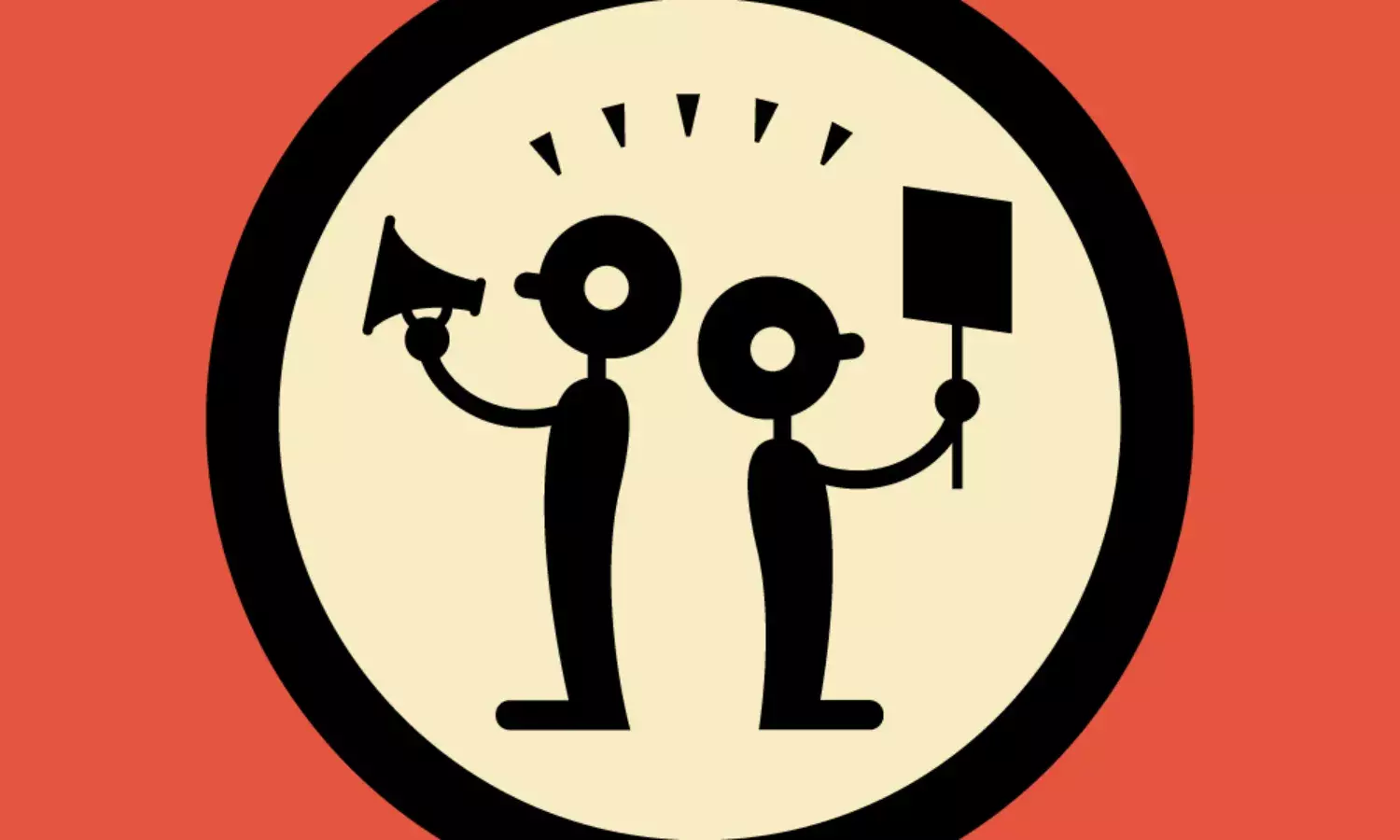Silencing Dissent
The media holds democratically elected leaders accountable

India has always been known as a secular nation and not just a country of Hinduism – as is being projected by the present government, and who are doing their utmost best and leaving no stone unturned in distorting historical facts and history as we know it. The reason India stood out from other countries and still does is because of its diversity and ability to accept and integrate all cultures. However lately, with the targeting of journalists, actors, writers, the few upright politicians we have and dissenters, it is becoming evident that a particular religious discourse is all out to destroy what India stands for.
What is alarming is that very little is being done to curb flared religious emotions. The widening gap between ethnic groups and fervour in religious sentiments is also worrisome. In a democracy like ours, the government is responsible to respect the voices of individuals who disagree with the government's decisions. Especially, when the said individuals are experts in their field, listening to their conscience, and doing their duty in the public interest, a democratic government should not only respect those voices, but listen carefully.
Unfortunately, in recent years, numerous individuals who have listened to their conscience, and done their duty, and raised their voices in the public interest, have been censored from communicating. They have also been treated with contempt if they do not obey – leading to being marginalized, weakened, and treated with disdain.
We need to work together to reverse this trend, and build a strong Indian democracy, in which the government respects our diverse voices, our right to be treated with respect, and our right to free speech. There is a need for policies that are more effective, democratic and exist to keep the youth on a responsible track. A policy that allows the younger generation to think for themselves and supports a long list of educational values:
- To show students their ideas matter and empowers them to make a difference in solving problems in their school and community;
- To emphasise core ethical and character values such as respect, caring, self-control, honesty, patience, cooperation, perseverance and effort;
- To allow them, under the coaching and support of a trained teacher/adviser, to practice the democratic principles they learn in government and social studies classes;
- To instil in students the values of democracy, including how to express themselves in effective ways. Students must learn to think critically, research topics, conduct interviews, write clearly for an audience and work together as a team. They need to be tolerant of views with which they disagree.
One would expect the India of 2018 to be a changed, liberal version of itself, having seen so much blood and gore and having sacrificed many who disagreed with the popular opinion. Unfortunately, it appears that there are many people in India who still have a problem with its democracy and the right of dissent. A black cloud has been descending around the country’s free thinkers.
It’s not uncommon for many in India to think that they need to appease the current government in power in order to live peacefully. Journalists who report in local languages do not have access to the facilities and security that those who report for big English publications do. They risk their lives every day to expose corruption in society. Instead of protecting them for their vital contribution, they are being exposed to gunfire.
The media hold democratically elected leaders accountable by exposing corruption and policy failures. Although many politicians accept media criticism as intrinsic to liberal democracy, some politicians rein in freedom of the press or intimidate media outlets to silence their critics.
Most often trouble occurs when an individual or group which is more powerful than another tries to directly or indirectly censor, persecute or otherwise oppress the other party, rather than engage with and constructively respond to or accommodate the other party's arguments or viewpoint.
In this century of democracy, globalization and multiculturalism, people have much wider opportunities that it was a hundred years ago. Freedom, as a right and as a value, has drastically changed the view of society, its pains and needs. As almost a constitution of any country states, “All citizens shall have the right to freedom of speech and expression”, as well as regulative laws provide protection of certain rights regarding freedom of speech and thoughts.
Freedom of speech is the right of a person to express thoughts, ideas, and personal opinions through a desired media without any restrictions, just so long that these actions do not infringe on the rights of another person or national security. Therefore, we have a right to exercise it without being silenced or crushed.



